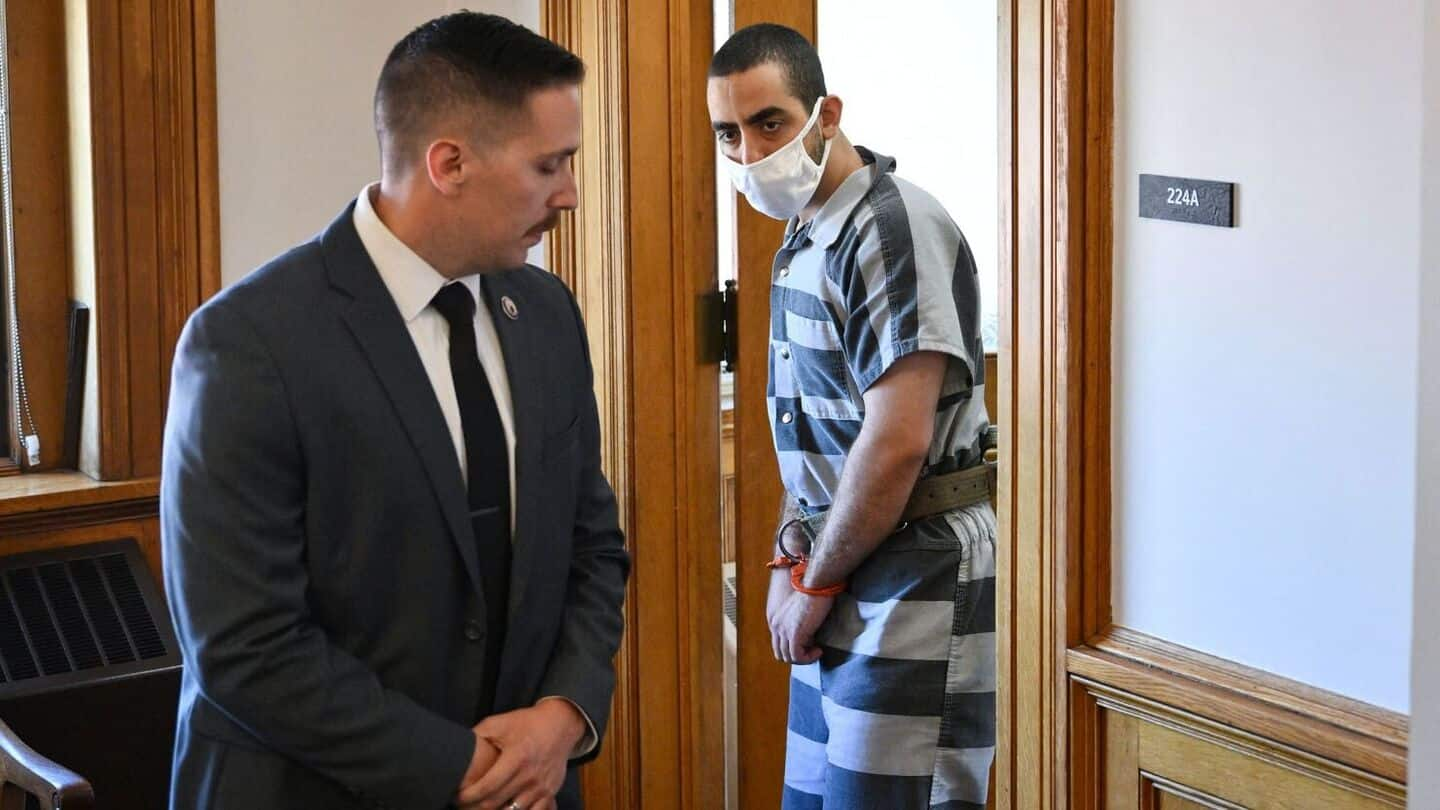
Man who stabbed Salman Rushdie sentenced to 25 years
What's the story
Hadi Matar, the man convicted of stabbing author Salman Rushdie, has been sentenced to 25 years in prison. Matar was found guilty of attempted murder and assault by a jury in February. The attack on Rushdie occurred on the Chautauqua Institution stage on August 12, 2022. Rushdie was stabbed 15 times. One of the stabbings left him blinded in his right eye, while other injuries were to the head, neck, torso, and left hand.
Sentence
Matar also guilty of assaulting another
Matar was also found guilty of assault for wounding Henry Reese, the person who was interviewing Rushdie. He was given a seven-year sentence plus three years after his release for the attack. The sentences will run concurrently since both victims were harmed in the same incident, Chautauqua County District Attorney Jason Schmidt said. According to the Associated Press, Matar stood and spoke about free speech before being convicted, calling Rushdie a hypocrite.
Author's ordeal
Rushdie's recovery and upcoming federal trial
Rushdie was not in court for the sentencing. But during previous testimony, he recalled his attack, saying, "I was aware of this person rushing at me from my right-hand side. I was aware of someone with dark hair and dark clothes...I was struck by his eyes which seemed dark and ferocious to me." "He hit me very hard around my jawline and neck. Initially I thought he'd punched me...but very soon afterwards I saw a large quantity of blood pouring."
Motive exploration
Matar's alleged motive and upcoming federal trial
Matar, a US citizen from Fairview, New Jersey, allegedly wanted to carry out a fatwa or edict calling for Rushdie's death. In one of his few statements after being arrested, Matar told the New York Post that he had traveled from his home in New Jersey after seeing the Rushdie event advertised because he loathed the novelist. "I don't like him very much. He's someone who attacked Islam, he attacked their beliefs, the belief systems," he said.
Trial details
Video evidence and jury's verdict in Rushdie case
Rushdie, an atheist born into a Muslim Kashmiri family, has received death threats since the publication of The Satanic Verses, which was inspired by the life of the Prophet Muhammad. The book was banned in numerous Muslim-majority nations, with some Muslims accusing the novel of containing blasphemous content. In 1989, Iran's supreme leader, Ayatollah Ruhollah Khomeini, issued a fatwa, or religious decree, ordering Muslims to kill the novelist and anybody involved in the book's release.